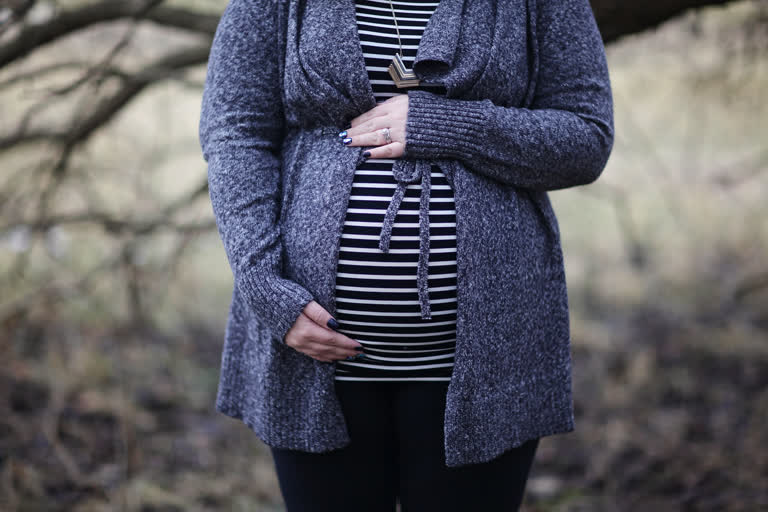Hyderabad: Pregnancy is the happiest time for a woman and her family. It is also a vulnerable time because of changes in the mother's immunity making her vulnerable to infections. With increasing numbers of cases of COVID-19 in the world and India, there is a concern regarding how to protect pregnant women and the potential impact of the virus on unborn child and mother's health.
In India, each month about 2 lakh women become pregnant. As the pandemic is a few months old, majority of mothers who delivered during the last three months of the global pandemic were already in their last trimester – in which adverse effect to the unborn child is minimal.
Congenital malformations happen more frequently if the infection happens in the first trimester when most key organs are forming in the womb.
Till now, there is no report of congenital malformations or increased risk of stillbirth linked to the COVID-19 pandemic. Studies coming out of China indicate that Coronavirus does not seem to have major adverse health consequences on the baby like Zika or Rubella infections. Zika was proven to have a major congenital malformation of babies delivered to infected mothers. Unlike Zika, in Corona infection, studies have not shown transmission from mother to child as the virus has not been detected in amniotic fluid or breast milk.
A study of 33 mothers from Wuhan showed three babies were positive after birth. Out of the three, two required no treatment and became negative on day six. The third baby which was premature needed antibiotics and recovered quickly. So, the conclusion is that we do not know if Coronavirus is transmitted from mother to child in the womb, but as of now the virus does not seem to have a major adverse health impact on the baby or mother.
Read: Is India registering less COVID-19 deaths?
But larger and long term studies in various countries are needed to show that the Coronavirus infection does not affect the unborn foetus. So what should a pregnant mother do in the absence of such studies? Lockdown in the world is likely to lead to a baby boom after 9 months. Many women will face early pregnancy in the peak time of the Corona epidemic.
In India, the number of pregnant mothers having diagnosed with COVID-19 is low as of now. There is only one documented case in Delhi where the mother was positive and has given birth to a healthy baby. But it should be kept in mind that about 80 per cent of coronavirus infections are mild to moderate and may not be tested. Hence, possible exposure to coronavirus infection during early pregnancy will be not small.
There is a need to ensure that pregnant mothers are followed up regularly by the healthcare providers – this will be difficult due to lockdown – routine antenatal care may be suspended or women may not be able to go out for this routine care. Hence it is important to ensure that they are connected to appropriate care if found to be symptomatic – cough, fever and sore throat. COVID-19 positive mothers should receive the care needed by doctors and should not be discriminated against. Mothers who are in the initial stages of pregnancy should take precautions as the adverse effects of infection are not clear yet. Wearing a mask, regular handwashing and avoiding contact with people with flu-like symptoms should be strictly followed.
Read: Why you need to use ACs with caution during COVID-19
WHO and Royal College of Obstetrics of UK agree that pregnant mothers should take precautions to prevent the infection. A physical check-up at regular interval is must and should be followed. The provider can ensure an appointment system where not more than two patients are in the clinic at the same time. Lockdown limits access to maternity care including emergency obstetric care especially blood transfusion. Health care providers need to educate mothers for such emergencies and give clear instructions regarding whom to call and where to go.
Routine infection control procedures need to be followed for the childbirth for the mother and healthcare provider for positive mother. Providers should not discriminate against positive mothers and respectful maternity care should be provided. COVID-19 is not an indication for C-section, on the contrary, it should be avoided unless medically indicated.
Read: COVID-19 virus originated in Wuhan lab, claims Nobel winning scientist
A positive mother can breastfeed her child with precautions such as wearing mask all the times, hand washing and minimal contact with the baby. If possible, expressed breast milk can be given to the baby while avoiding contact with the positive mother for a negative baby. For positive mother, all the guidelines for COVID-19 should be followed including isolation with an exception for breastfeeding. All the babies of positive mothers should be tested for COVID-19 at specified intervals as per guidelines.
Taking appropriate care would ensure that pregnant mothers in India will not get infected and mother and child will not suffer from adverse health effects of the pandemic. Positive mothers would be treated respectfully and scientifically by well-informed healthcare providers who would take care of themselves and their patient.
As the pandemic unfolds, long term effects of the virus on newborn will manifest and have to be studied systematically including virology studies of poor birth outcomes such as stillbirths and abortions. Special studies and surveillance should be instituted immediately.
(Dr Kranti Suresh Vora is an additional professor at Indian Institute of Public Health, Gandhinagar. An obstetrician, she completed MPH from the prestigious Johns Hopkins Bloomberg school of Public Health, and PhD from University of Maryland College Park. She has been published in renowned journals such as PlosOne, WHO Bulletin, and JHPN among others)




